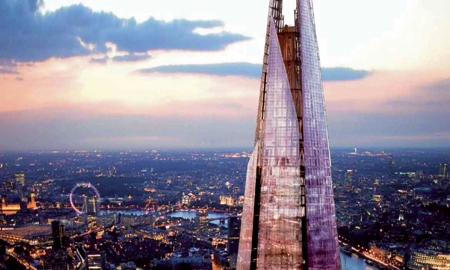Established just seven years ago, Qatar Investment Authority (QIA) is on target to become one of the world’s four largest sovereign wealth funds by 2015, along with those of China, Singapore and Abu Dhabi. With an estimated $85 billion in total assets, QIA has a major role to play in diversifying the country’s revenue sources.
As Qatar’s LNG exports approach their peak capacity, QIA, already the world’s 12th largest sovereign wealth fund, is set to benefit from greater purchasing power. Indeed, the fund and its various subsidiaries (Qatar Holding and Qatari Diar) have had more than $30 billion at their disposal to invest in 2012.
This follows a considerable spending spree during 2010-2011. From retail and real estate to energy and banking, the Doha-based fund continues to build its international portfolio at a remarkable pace.
In May of 2010, QIA purchased the UK’s landmark Harrods Group from Mohammed Al-Fayed for $2.2 billion. Plans are in the works to build a Harrods hotel in Kuala Lumpur (and later in New York City and Paris) next year. This acquisition was followed in September by a $5 billion framework deal between QIA and the Greek government paving the way for future investment in several sectors, including energy and banking. Later that same year, QIA purchased a 5 percent stake in Banco Santander’s Brazilian arm, Banco Santander Brasil, for $2.7 billion.
In 2011, Qatar spent $466 million on the Shell oil company’s building, Shell Centre in London, a precursor to its purchase of a significant stake in Royal Dutch Shell. Along similar lines, QIA has recently picked up a 3 percent stake in France’s Total and is in talks to buy a stake in Italy’s Eni. The fund has shares in Energias de Portugal and Iberdrola of Spain, as well.
In sports, the year 2011 also had significance for Qatar. One of Europe’s top football teams, FC Barcelona, began displaying the logo of Qatar Foundation – headed by the Emir’s wife Sheika Mozah; and QIA bought a 70 percent stake in French football club Paris St Germain. This year, the fund swept up the remaining 30 percent.
QIA’s strong incursion into France continued when it snatched up a 26,000 square-meter retail complex on Paris’ emblematic Avenue des Champs Elysées, for EUR500 million. One of the most celebrated promenades in the world, Champs Elysées is the address of luxury brand Louis Vuitton, another name recently added to QIA’s portfolio of investments; in March this year, the fund acquired just over a 1 percent stake in Louis Vuitton Moet Hennessy group.
In the UK, QIA’s name is linked to various important real estate projects, such as the redevelopment of the 95-storey Shard Skyscraper, London’s Olympic Park and One Hyde Park residences. Qatar’s real estate, banking and infrastructure investments in Britain top $16 billion.
Headed by the Qatari Prime Minister, Sheikh Hamad bin Jassim bin Jabr al-Thani, QIA operates through two major investment vehicles. Qatar Holding, incorporated in 2006, is the main vehicle for strategic and direct investments, while Qatari Diar Real Estate Company is the fund’s property investment arm.
Established in 2005 and with an estimated $35 billion in assets, Qatari Diar has investments in the UK, France, Thailand, Morocco, Egypt, Oman and Syria, among others. Currently the company has more than 49 projects either under development or in planning at home and abroad.
Most of QIA’s high-profile investments, however, have been made through Qatar Holding, including commitments in construction company Hochtief and auto-makers Volkswagen and Porsche. Focusing on long-term gains and taking advantage of growth opportunities, Qatar Holding generally makes long-term strategic investments, mixed with the occasional opportunistic position from time to time.
Spread across different asset classes, including listed securities, alternative assets and private equity, investments have tended to be more focussed in Europe and Asia, with a few in the US, and include France’s Lagardere Group, London’s Canary Wharf, Singapore’s Raffles Medical Group, and the UK’s second biggest grocer, Sainsbury’s.
With its eye on the future, QIA has also invested heavily in the clean technology sector, having created in 2008 a €287 million fund for low carbon investment, in collaboration with the UK’s Carbon Trust – an independent, non-profit fund set up by the UK government that provides specialist support to help businesses and the public sector boost returns by cutting carbon emissions, saving energy and commercialising low carbon technologies.
In March 2010, Qatar Holding signed a letter of intent with Qatar Science and Technology Park, Porsche and Volkswagen to launch a series of initiatives covering areas such as education, research and commercial applications of a broad range of technologies, including both engineering and fuel technology.
Qatar Holding has also shown a particular affinity for financial institutions. The company holds shares in Barclays, Credit Suisse and the London Stock Exchange, in addition to shares in the Industrial and Commercial Bank of China and the Agricultural Bank of China.
At the end of the day, the fund’s main mission is to use the excess revenues from Qatar’s oil and gas industry to diversify the national economy, help moderate the effects of fluctuating oil and gas prices, and ensure continued growth after hydrocarbons resources are exhausted.
Consequently, Qatar Holding also invests in Qatar, and currently owns shares in Qatar Telecom, Qatar National Bank, the Qatar Exchange and various local banks. Through Qatari Diar, QIA has invested in major infrastructure projects such as Lusail City, the bridge between Qatar and Bahrain, and in a joint venture with Deutsche Bahn, the development of the national railway network.

0 COMMENTS